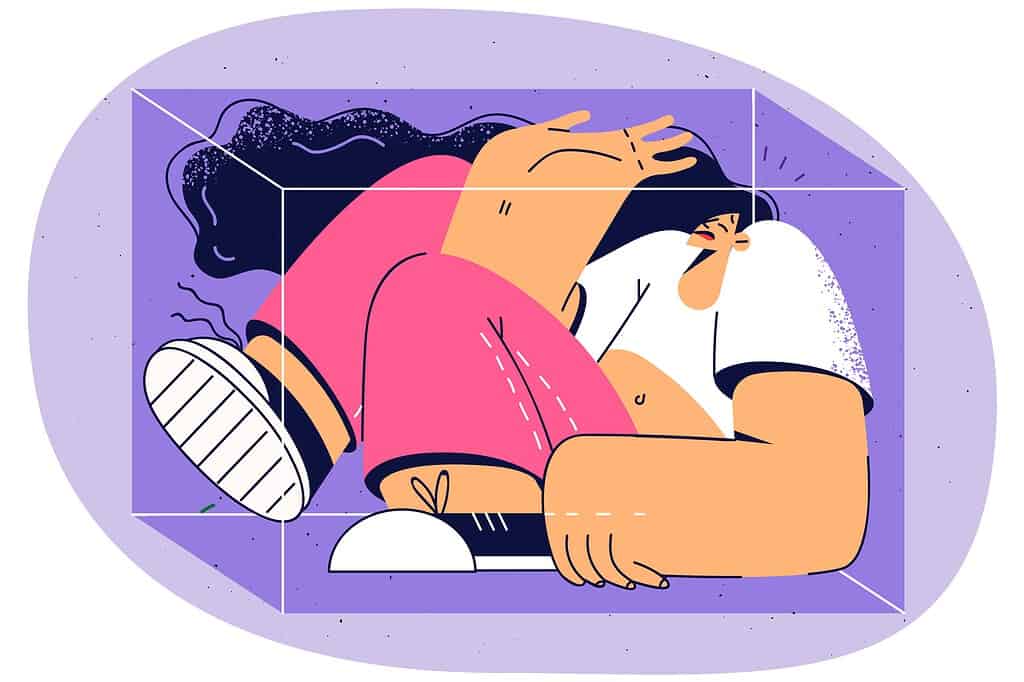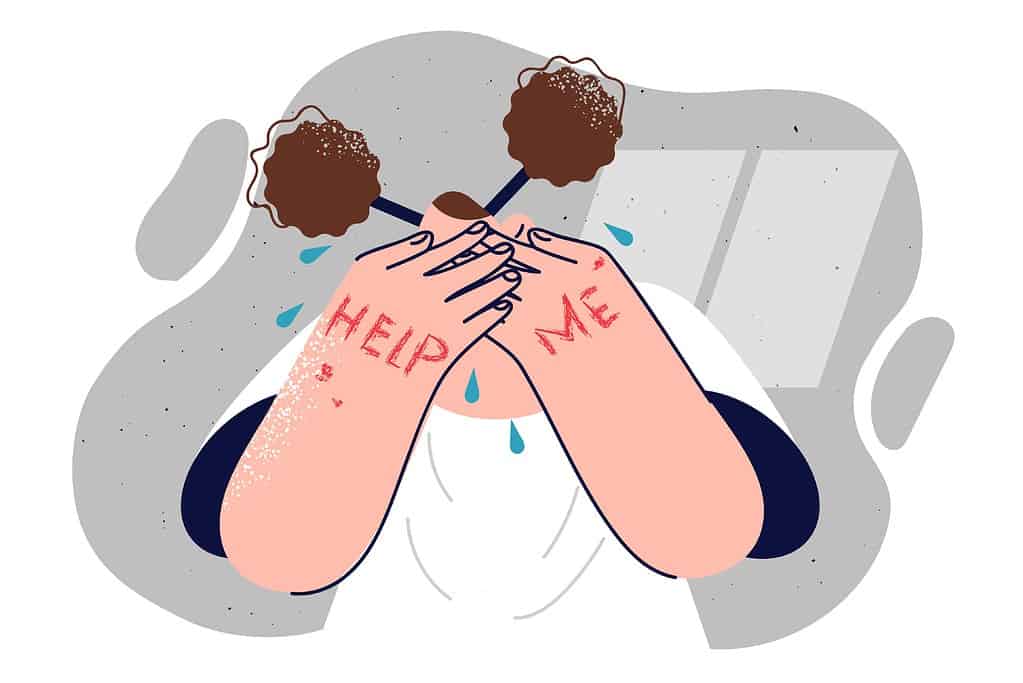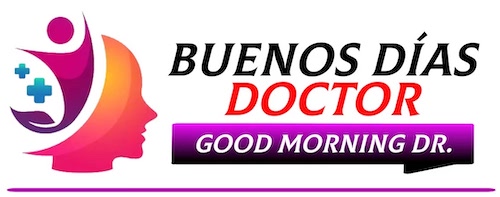A Perfect Treatment

BDD – GMD
John had been anxious all morning. He was about to deliver a speech at his company’s annual conference but felt lost. He had been practicing his lines for the past week but still needed to handle them more confidently. As time got closer, his anxiety levels started to go. His heart was pounding, and his palms were sweating.
__________
He tried to take a deep breath and assure himself that everything would be okay, but he was unsuccessful. Suddenly, he felt a sense of panic and searched for a quiet place to calm down. He searched for a bathroom and locked himself in there.
Anyone suffering from an anxiety disorder knows the symptoms that often accompany attacks. But to learn how to deal with the condition and even get over it, it is essential to understand why it happens.
Fear is the most common symptom of an anxiety disorder, caused by a threat that is only perceived and not actual.
When the brain perceives danger, it reacts with biological responses that prepare the body to fight the threat or run away from it.
Sweating is among the most common symptoms of an anxiety attack due to a perceived threat. Nausea. Diarrhea. Dizziness. Chest pain. Fear of losing control of heart palpitations, which feel like the person is about to die.
Anxiety attack symptoms peak in 10 minutes and then subside in 30 minutes or less. Numerous instances of anxiety attacks appear without reason.
Feeling restless or nervous about keeping up with the fast pace of the 21st-century lifestyle is normal.
Everyone experiences anxiety from time to time. Moments of anxiety help focus attention, energy, and motivation. However, stress can cause feelings of helplessness, confusion, and distress.
Physical anxiety symptoms include extreme fatigue and sleep problems, such as the inability to fall asleep or stay asleep, waking up early, and not feeling well rested.
Anxiety also affects the part of the brain that helps people communicate. This condition makes it hard to be creative or effective in relationships.
Mental faculties can include restlessness, irritability, inability to concentrate, and fear that something terrible will happen.
Women are twice as likely as men to have anxiety disorders. Researchers don’t know why this happens, but they think that changes in female hormone levels and reproductive cycles increase the risk of anxiety disorders.
__________

__________
🟥
People with anxiety disorders rush to treat this condition and turn to medications. These medications «short-term» calm and relax people with excessive anxiety and nervousness. However, drugs can lead to side effects such as sedation, drowsiness, depression, and dizziness.
__________
Many patients seek alternative medications for their condition, such as herbs. For example, St. John’s wort (Hypericum perforatum) treats anxiety, insomnia, and depression.
This herb slows the breakdown of brain chemicals called serotonin. Low serotonin levels are associated with depression. Despite its benefits, people should seek physician approval to clarify side effects.
__________

__________
Four techniques to limit and manage anxiety.
1️⃣
ICE WATER. Immerse your hands in ice water or splash on your face. Stimulation of the sensory system with cold water combats anxiety.
2️⃣
CLENCH YOUR FISTS. As if you were angry, clench your fists as tightly as possible. Inhale deeply, and relax your hands a little as you exhale. Then stretch your fingers as far as possible. Become aware of your body again, and notice that your anxiety points have decreased.
3️⃣
CALMING PHRASE. Take at least three deep breaths, inhaling through your nose and exhaling through your mouth. Slowly repeat three times: ‘I am well and loved.’ You will be calmer in no time.
4️⃣
DECREASE YOUR ATTENTION ON SOCIAL NETWORKS. Internet surfing increases anxiety and fear due to inaccurate or irrelevant information.
__________
Anxiety is a feeling that affects everyone, whether we are aware of it or not. It is a fear, worry, and concern about something in the future or apprehension about what might happen.
It is a heavy burden that weighs down the mind and body, making it difficult to concentrate.
Common causes of anxiety include mental health conditions, physical conditions, drug use, stressful life events, shyness or distress in new situations, exhaustion or stress buildup, lots of change or uncertainty, feeling under pressure while studying or working, and long working hours.
__________
🟡 🔴 🔵 REMEMBER
__________
Sometimes, anxiety is a priceless reaction that helps us stay alert to potential danger.
However, when it becomes excessive, it is debilitating and interferes with our daily lives. It can manifest with physical symptoms, such as palpitations, shortness of breath, tightness in the chest, and muscle tension.
__________
